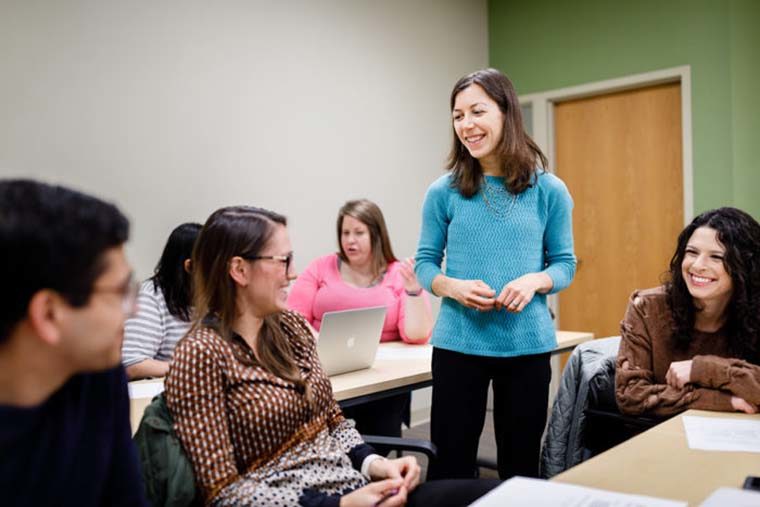Medical students aren’t the only learners in Mary Politi’s class on how health information is conveyed and received. Sometimes other faculty members attend also, to improve how they consider treatment options and discuss them with patients.
Politi, whether in person or through evidence-based decision tools she develops with others at Washington University School of Medicine in St. Louis, works with patients to empower them and help optimize their care.
“If we can better match the care patients want and need to the care they get, we can improve their patient experience and overall health” said Politi, an associate professor of surgery and a health psychologist in the school’s Division of Public Health Sciences.
A New Jersey native, Politi earned a bachelor’s degree in psychology from Barnard College at Columbia University in 2001 and a doctoral degree in clinical psychology, with a health psychology concentration, from George Washington University in 2006. She completed her clinical internship and postdoctoral fellowship in behavioral medicine at Brown University before joining the Washington University faculty.
Timothy J. Eberlein, MD, the Bixby Professor of Surgery and head of the Department of Surgery at the School of Medicine, said Politi is “a superb researcher” and an important mentor and role model to junior faculty members and trainees in the department and at Siteman Cancer Center, where she is a researcher.
“She has spent enormous amounts of time helping others while maintaining her own incredible productivity,” said Eberlein, who also is director of Siteman. “She is an incredible human being. Not only is she a fabulous researcher, she is without a doubt one of the nicest people at WashU.”
In addition to researching and teaching about health-care communications and shared decision-making, Politi also has helped develop digital tools to help:
- People choose health insurance plans that best meet their health and financial needs.
- Breast cancer patients choose whether or when reconstruction is right for them after a mastectomy.
- Patients with Hepatitis C and advanced kidney disease decide which treatment option is best.
- Support rural cancer patients’ participation in clinical trials.
“Together, we look at ways to support decisions to positively affect their health,” Politi said. “If you really start asking people questions about what it is they value and what their daily life is like, you learn a lot about how their health fits into that picture.”
Read the full profile on the School of Medicine site.
